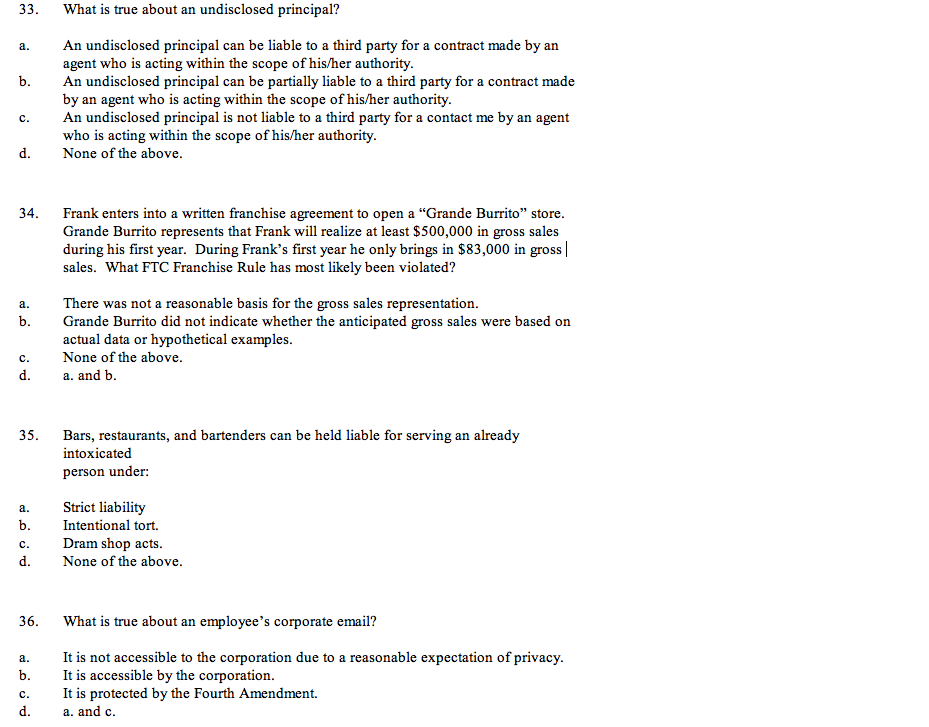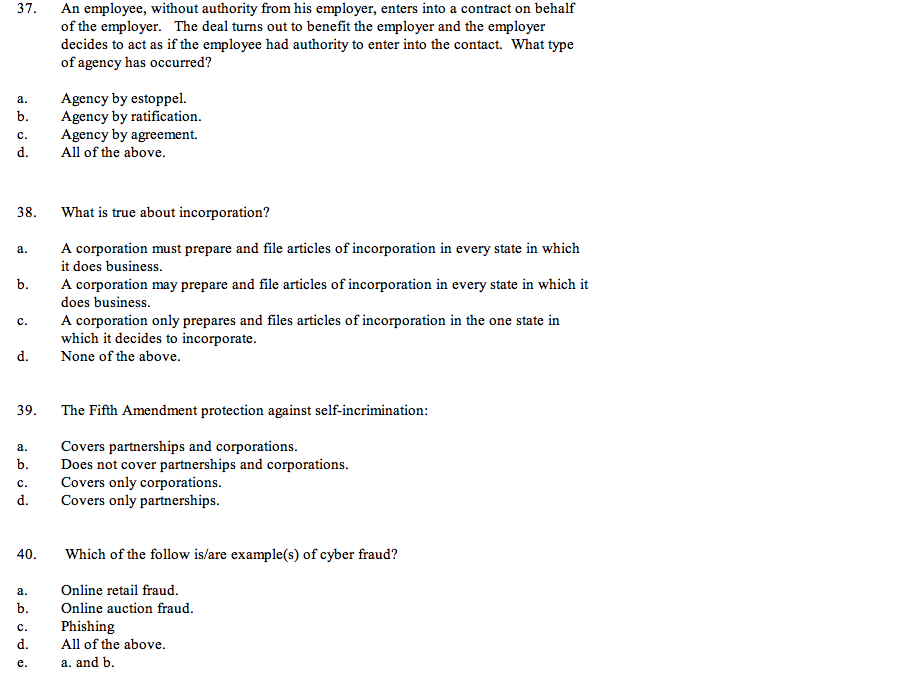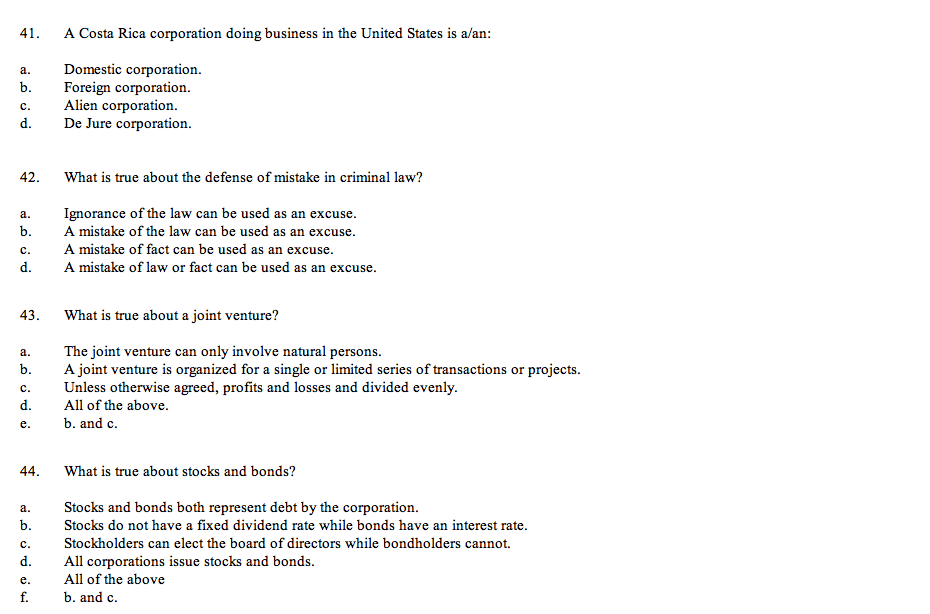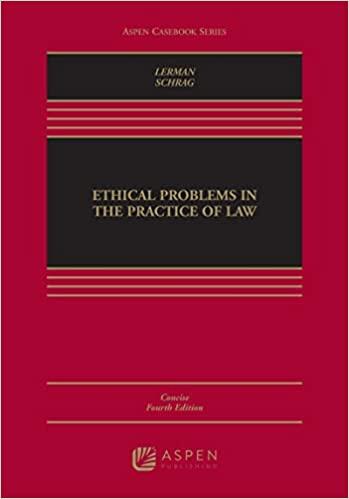Please answer the 11 questions and explain your answer
33. What is true about an undisclosed principal? a An undisclosed principal can be liable to a third party for a contract made by an agent who is acting within the scope of his/her authority. b An undisclosed principal can be partially liable to a third party for a contract made by an agent who is acting within the scope of his/her authority. C. An undisclosed principal is not liable to a third party for a contact me by an agent who is acting within the scope of his/her authority. d. None of the above. 34. Frank enters into a written franchise agreement to open a "Grande Burrito" store. Grande Burrito represents that Frank will realize at least $500,000 in gross sales during his first year. During Frank's first year he only brings in $83,000 in gross | sales. What FTC Franchise Rule has most likely been violated? a. There was not a reasonable basis for the gross sales representation. b. Grande Burrito did not indicate whether the anticipated gross sales were based on actual data or hypothetical examples. C. None of the above. d. a. and b. 35. Bars, restaurants, and bartenders can be held liable for serving an already intoxicated person under: Strict liability Intentional tort. C . Dram shop acts. None of the above. 36. What is true about an employee's corporate email? a. It is not accessible to the corporation due to a reasonable expectation of privacy. b . It is accessible by the corporation. It is protected by the Fourth Amendment. d. a. and c.37. An employee, without authority from his employer, enters into a contract on behalf of the employer. The deal turns out to benefit the employer and the employer decides to act as if the employee had authority to enter into the contact. What type of agency has occurred? P Agency by estoppel. b. Agency by ratification. C . Agency by agreement. All of the above. 38. What is true about incorporation? 1. A corporation must prepare and file articles of incorporation in every state in which it does business h A corporation may prepare and file articles of incorporation in every state in which it does business. C. A corporation only prepares and files articles of incorporation in the one state in which it decides to incorporate. d. None of the above. 39. The Fifth Amendment protection against self-incriminatin a. Covers partnerships and corporations. b . Does not cover partnerships and corporations. C. Covers only corporations. d. Covers only partnerships. 40. Which of the follow is/are example(s) of cyber fraud? a. Online retail fraud. Online auction fraud. C. Phishing All of the above. e. a. and b.41. A Costa Rica corporation doing business in the United States is a/an: a. Domestic corporation. b . Foreign corporation. C. Alien corporation. d. De Jure corporation. 42. What is true about the defense of mistake in criminal law? a. Ignorance of the law can be used as an excuse. b. A mistake of the law can be used as an excuse. C. A mistake of fact can be used as an excuse. d. A mistake of law or fact can be used as an excuse. 43 What is true about a joint venture? a. The joint venture can only involve natural persons. b . A joint venture is organized for a single or limited series of transactions or projects. C. Unless otherwise agreed, profits and losses and divided evenly. All of the above. e. b. and c. 44. What is true about stocks and bonds? a. Stocks and bonds both represent debt by the corporation. b. Stocks do not have a fixed dividend rate while bonds have an interest rate. C. Stockholders can elect the board of directors while bondholders cannot. d. All corporations issue stocks and bonds. e . All of the above the b. and c









